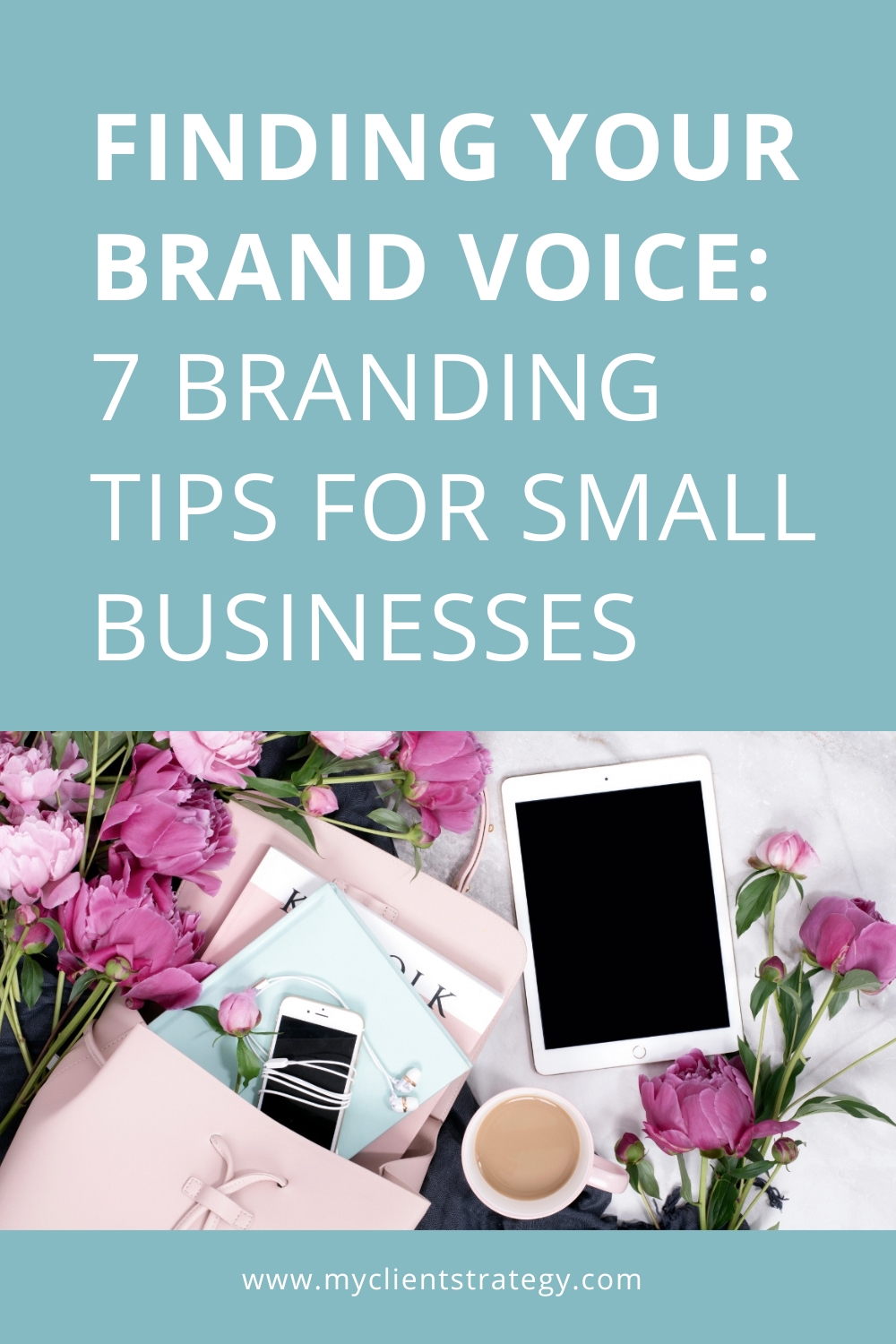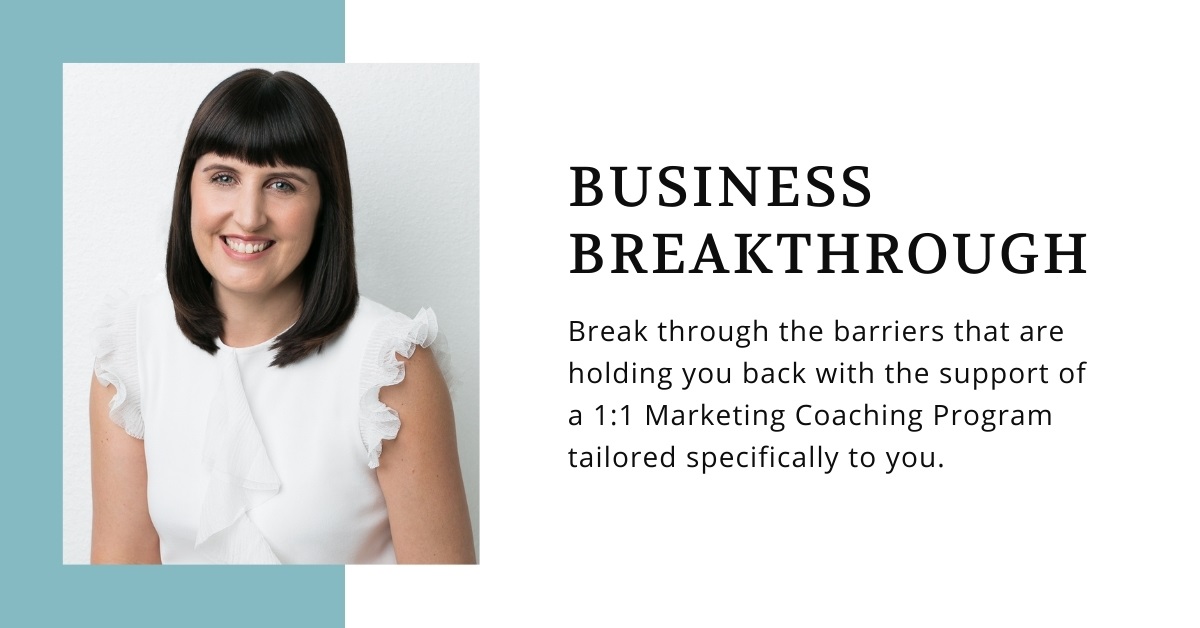Finding Your Brand Voice: 7 Branding Tips for Small Businesses

For service-based businesses, personal connection and having a distinct and genuine brand voice can be the difference between blending in and standing out.
But how do you find this brand voice?
And how do you communicate your brand’s values, engage with your audience, and remain authentic?
In this blog post, I’ll cover seven branding tips to help service-based small business owners find and develop a clear, compelling, consistent brand voice.
1. Understand Your Brand’s Core Values
The foundation of any strong brand voice lies in a deep understanding of your business’s core values.
Your values define what you stand for, how you operate, and the principles that guide your decisions.
They’re not just words on a page but the heartbeat of your business, and they should resonate in every piece of communication.
So, start by identifying your mission and vision.
Why did you start your business? What impact do you hope to make? These questions can help uncover your core values.
For example, are you committed to quality, innovation, customer satisfaction, or community service? Or would you describe your business as ‘innovative,’ ‘reliable,’ ‘friendly,’ or ‘an expert’?
Once you have a list of your core values, these should become the backbone of your brand voice.

2. Define Your Target Audience
Knowing who you’re talking to is as important as knowing what you’re saying.
Your brand voice should speak directly to your target audience, addressing their needs, preferences, and pain points.
Understanding your audience helps you create a voice that resonates with them, making your brand relatable and trustworthy.
I recommend that you conduct extensive target market research.
This can include surveys, social media interactions, customer feedback, or even analysing your competitors’ audiences.
Identify their demographics, interests, and challenges.
But also dig deeper than this to uncover their wants, needs, fears, and objections.
The more you know about your target audience, the better you can tailor your brand voice to meet their expectations.
RELATED: How to define a target market for your service business
Not sure where to start when it comes to marketing your service-based small business? That’s where I can help. Get started by downloading my free Ultimate Marketing Checklist by clicking the button below:
3. Determine Your Unique Selling Proposition (USP)
Your Unique Selling Proposition (USP) sets you apart from the competition.
It’s the special something or different that only you can offer.
Your USP should be central to your brand voice, showcasing why customers should choose your services over others.
So, think about what makes your business unique.
Do you offer personalised service, a specific expertise, or a commitment to sustainability?
Whatever it is, make sure it shines through in your messaging.
A strong USP defines your brand voice and helps you carve out a niche in the market.
RELATED: 7 Things an effective marketing message must have
4. Develop a Consistent Tone and Style
Consistency is vital when it comes to small business branding.
So, your brand voice should remain consistent across all platforms and types of communication.
Consider the personality of your brand and what type of language you would like to use.
Your tone and style should also be instantly recognisable, whether in your website copy, social media posts, or email newsletters.
5. Infuse Authenticity into Your Branding
Authenticity can make your brand stand out in a world flooded with generic marketing messages.
I encourage you to share your story and discuss the journey leading to you starting your service-based small business.
You can highlight the challenges you’ve faced and the successes you’ve celebrated to ensure your brand is more relatable and trustworthy.
Another opportunity is to share what’s happening behind the scenes in your business.
Clients are more likely to connect with brands that feel genuine and transparent.
Being authentic also means staying true to your core values and not being afraid to show the human side of your business.
Not sure where to start when it comes to marketing your service-based small business? That’s where I can help. Get started by downloading my free Ultimate Marketing Checklist by clicking the button below:
6. Engage with Your Audience
Building a strong brand voice isn’t just about talking — it’s about listening, too.
Engaging with your audience helps you understand their needs, gather feedback, and refine your brand voice.
Interaction builds community and makes customers feel valued and heard.
So be sure to ask for feedback, respond to comments, and engage in conversations.
Social media platforms are great for this kind of interaction. You can adapt your messaging by actively listening to serve your audience better.
Also, consider building a community around your brand. This could be through a Facebook group, a newsletter, or regular meet-ups.
Communities give your audience a sense of belonging and can turn customers into brand advocates.
7. Evaluate and Adapt Your Brand Voice
Branding isn’t a one-time task; it’s an ongoing process.
As your business grows and your audience evolves, your brand voice may need to adapt.
Regularly review your brand voice to ensure it aligns with your business goals and resonates with your audience.
I recommend setting aside time periodically to review your brand voice.
Check if your messaging still aligns with your values and reflects the changes in your business. This practice keeps your brand voice relevant and effective.
Also, be open to change. If your audience feedback suggests your brand voice is too formal, consider loosening it up.
Flexibility allows your brand to grow and stay connected with your audience.
So, there are seven branding tips to help you find your brand voice.
Finding and cultivating your brand voice is crucial for small business owners who want to connect with their audience and differentiate themselves in the market.
By understanding your core values, knowing your audience, defining your USP, maintaining consistency, being authentic, engaging with your audience, and regularly evaluating your voice, you can create a brand that stands out and resonates on a personal level.
Remember, your brand voice is a powerful tool for building relationships, fostering loyalty, and growing your business.
By implementing these tips, service-based small business owners can create a unique, authentic, and engaging brand voice that will help them stand out and succeed in their markets.
Tired of trying to figure out what you’re missing when it comes to finding clients and making sales in your service business?
Break through the barriers that are holding you back with the support of an MBA-qualified Marketing Coach and Business Mentor who will tailor a 1:1 program specifically for you.

BUSINESS BREAKTHROUGH is my signature 6-month 1:1 Coaching Program for service-based business owners who want to develop the strategy, systems, and structure they need to find clients and make sales, so they can stop feeling stuck and start gaining massive momentum in their business.
Did you find this post helpful? Don’t forget to PIN it on Pinterest and share it on Facebook.



